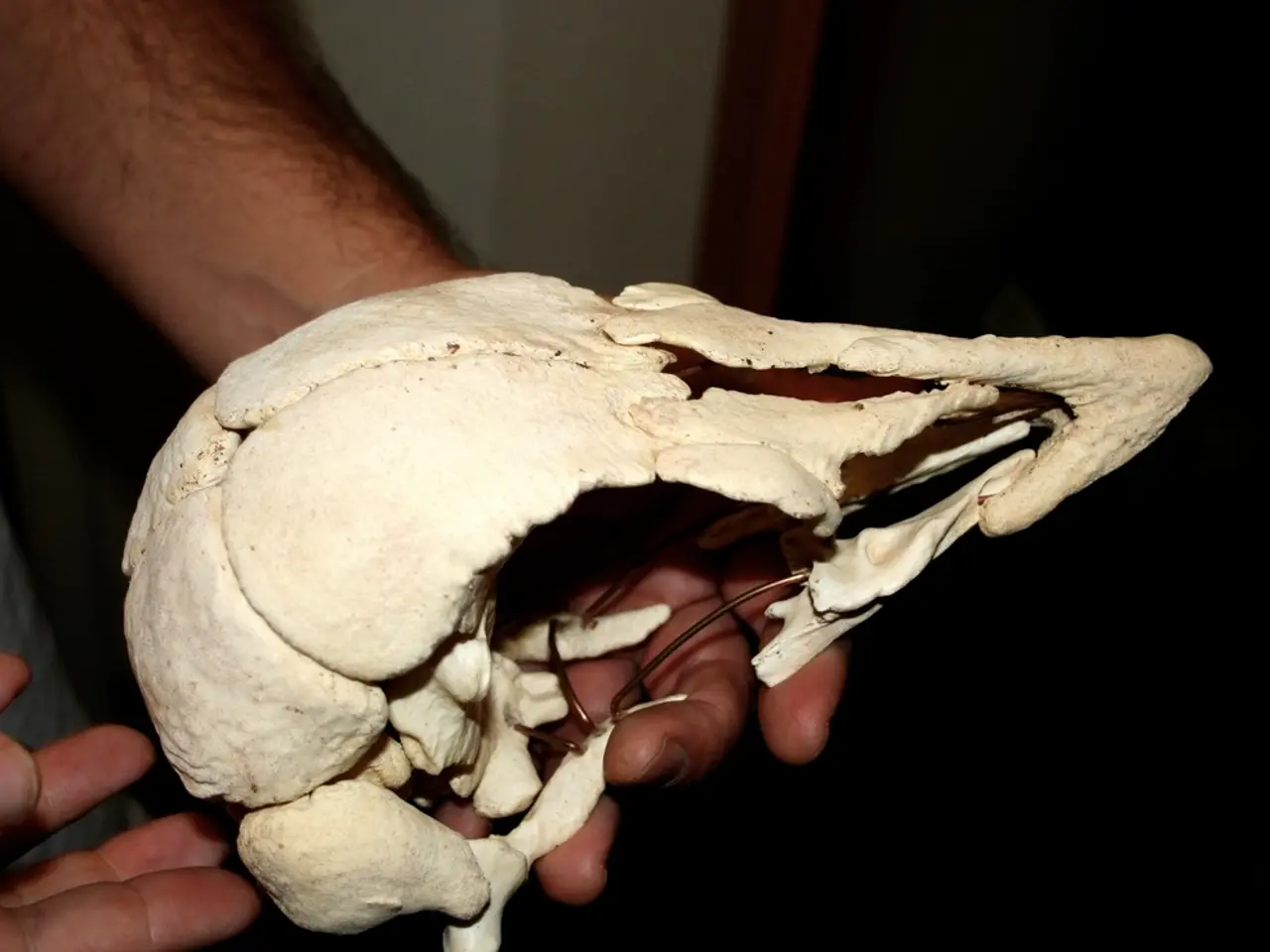Understanding Apert Syndrome: A Genetic Condition Characterized by Premature Fusion of Skull Bones and Limb Deformities
Apert Syndrome is a rare genetic disorder that falls under the category of craniosynostosis syndromes. This condition, first described by the French surgeon Dr. Eugène Apert in the early 20th century, affects both males and females equally and can be found in individuals from all ethnic backgrounds. Approximately 1 in 65,000 to 1 in 88,000 live births result in Apert Syndrome [1].
Characterized by the premature fusion of certain skull bones, Apert Syndrome leads to a variety of physical abnormalities. Individuals with Apert Syndrome often exhibit distinctive facial characteristics, fusion of fingers and toes (syndactyly), and potential cognitive challenges [2].
Early diagnosis and intervention are essential for improving quality of life. A multidisciplinary care team, consisting of pediatricians, geneticists, surgeons, therapists, and other specialists, can provide a holistic approach to managing Apert Syndrome [3]. Treatment options include surgical interventions, orthodontic treatment, speech and language therapy, and occupational and physical therapy.
The severity of symptoms can vary significantly from person to person. Long-term cognitive outcomes for individuals with Apert Syndrome typically involve developmental challenges, including intellectual disability and neurodevelopmental delays, although severity can vary [4]. These impairments can manifest as delayed speech, developmental delays, intellectual disability, or other neuropsychological deficits.
Genetic testing can provide valuable insights for families affected by Apert Syndrome, including understanding the risk of passing the condition to future children and tailoring medical and surgical interventions based on the specific genetic mutation. The genetic mutation responsible for Apert Syndrome typically occurs in the FGFR2 or FGFR1 genes, which encode fibroblast growth factor receptors [5].
Routine medical check-ups are essential for monitoring growth and development in individuals with Apert Syndrome. Children with Apert Syndrome may require Individualized Education Plans (IEPs) and a supportive learning environment to thrive in school settings. Educational resources, such as books, webinars, and workshops, can help families and educators understand Apert Syndrome and advocate for affected individuals.
Several organizations, such as The Craniofacial Foundation of America, Face Equality International, and local support groups, provide support, education, and resources for families affected by Apert Syndrome. Emotional and psychological support, including counseling services and support groups, can help individuals and families cope with the emotional aspects of living with Apert Syndrome.
Access to specialized medical care, including pediatric specialists, multidisciplinary teams, and telehealth services, is crucial for managing Apert Syndrome effectively. Early intervention through therapies and educational support can significantly enhance cognitive outcomes for individuals with Apert Syndrome.
[1] National Organization for Rare Disorders (NORD). Apert Syndrome. https://rarediseases.org/rare-diseases/apert-syndrome/ [2] Genetics Home Reference. Apert Syndrome. https://ghr.nlm.nih.gov/condition/apert-syndrome [3] Mayo Clinic. Apert Syndrome. https://www.mayoclinic.org/diseases-conditions/apert-syndrome/diagnosis-treatment/drc-20372480 [4] National Institutes of Health. Apert Syndrome Information Page. https://www.ncbi.nlm.nih.gov/books/NBK1395/ [5] National Center for Advancing Translational Sciences. Apert Syndrome. https://rarediseases.info.nih.gov/diseases/1147/apert-syndrome
In the context of Apert Syndrome, a rare genetic disorder that affects physical appearance and potential cognitive challenges, understanding the role of science and medical-conditions is crucial for early diagnosis, management, and improving health-and-wellness outcomes. Genetic testing, for instance, can offer valuable insights into the specific genetic mutation responsible for Apert Syndrome, allowing for personalized medical and surgical interventions. Additionally, various health-and-wellness interventions, such as speech and language therapy, occupational and physical therapy, and a holistic multidisciplinary care approach, can significantly enhance cognitive outcomes for individuals with this condition.




